Last week I started getting a ton of messages from people to let me know Kevin Bacon just published a video of him trying to woo his alpaca Sharona. I think Kevin's videos are awesome and I love that he is bringing greater exposure to our industry. What I don't like is Sharona looks aloof, and I personally, don't think that is the case.
I've had Sharonas on the farm, and no matter what you may think of them, there are ways to win them over.
The issue is humans don't think like alpacas, they are used to interacting with dogs and cats, and they simply don't interact in a manner to make the alpacas feel safe and secure.
On our farm people call me the alpaca whisperer because I do my darndest to make an emotional connection with every alpaca I meet. Whether we've bought it, rescued it, or birthed it, I will make sure that animal feels loved and secure. And my efforts are always returned. And the reason is I work for it and I make sure they know they are loved.
In Kevin's video, Sharona is curious and she wants to engage, but she doesn't feel secure enough to do so. So what would I do if I were with Sharona? I'd do the same process I do with every alpaca who I interact with on our farm. The process I know works for me and my herd.
@kevinbacon If that doesn't get Sharona’s attention, I don’t know what will.
Tips for Making Friends With Even the Most Difficult Alpaca
- Remember that every interaction is an opportunity to build trust or tear it away. This is key. You cannot let your excitement or frustration take over.
- Get your big old human body on the same level (or below) as the alpaca so you are not intimidating. I tend to sit right on the ground, but not overly close. This makes me more approachable and a lot less scary.
- Look the alpaca in the eye and talk to them with genuine affection. Some behavior experts advise against eye contact, but for me it is critical. I believe this lets the alpaca know they are seen, they matter, and it helps them know you are taking time to interact with just them.
- Say their name as you speak to them. As I walk through the barn or the paddock I greet everyone by their name. This could be their full name or an abbreviation of it. My girl Nibbler is only ever called Nibbler if she is in trouble. Otherwise, she is Nibs and she knows this is her pet name and that it is said with love and affection.
- While you are interacting, keep those human arms in and close to your body. That way they know you're not going to grab them to give them their monthly preventative shot (we have to do that in Michigan for the Meningeal worm parasite) or trim their toes.
- Never touch their head. They are not dogs and cats. Every alpaca hates their heads touched. I think this might have to do with them being prey animals and I suspect this is a location where other animals will grab to take them down in a fight.
- Just talk to them. Or sing to them. Just make your voice is heard. I've learned my alpacas like me talking and they tolerate me singing. I'm no Kevin Bacon and somehow my alpacas know I'm in no position to win a Grammy.
- Use food to build trust. We will hand-feed their daily food pellets as treats and many of our alpacas love carrots or apples cut in small strips (like a french fry). This allows close interaction and reinforces that closeness is a safe activity.
- When the alpaca finally starts to voluntarily approach you, keep your hands in, stay still, maintain eye contact, and let them bop your nose, smell your hair and skin, or nibble on your face. The nose bop takes getting used to, but this is an alpaca kiss and it is a sign of affection. Most of our herd kisses me. Kalista snorts every time she kisses me, some alpacas come in way too fast for kisses and about knock your nose off, and others will give you a big bunch of hay breath. When you're building trust you take all of it and accept them for their goofiness. I also thank them for the kisses so they know I appreciate the love.
- Watch your surroundings and make sure the alpaca isn't in a corner or backed into a building, fence, or gate. They will make them feel trapped. They need to know they have an exit plan if needed. The reality is they don't leave, but they still want to know a route exists.
- If you're alpaca is bad tell them so. I use a "mom voice", put my finger up, and scold them using their name. I use a consistent phrase of " no ma'am" along with their name so they know that behavior isn't cool. This trick is super effective and some of the alpacas just have to see my facial expression change to know they've crossed the line. Alpacas are smart and they learn quickly. Consistency is important for modifying bad behavior.
How long does it take to woo an alpaca? It highly depends on the alpaca's age, prior experience with humans, and overall personality. Just like humans, there are introverts and extroverts, some have experienced trauma, and some are just aloof or timid. The important thing is no matter what the situation, you can build that trust if you work at it.
4 Examples of Building Trust With My Biggest Challenges
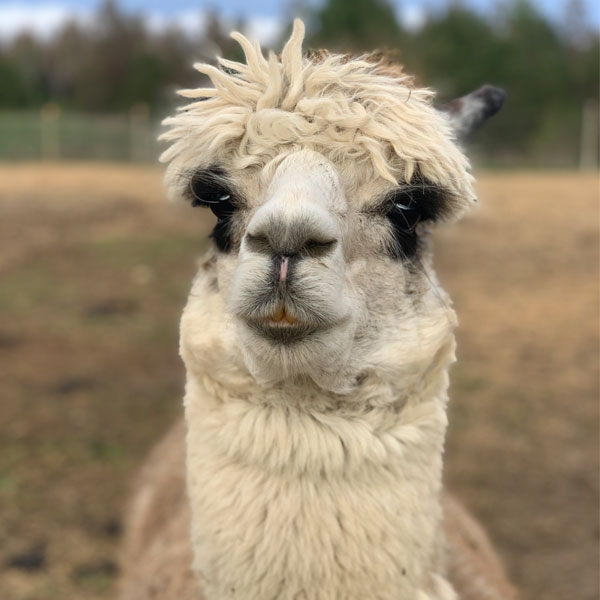
Leviticus
This boy is an adult breeder male and we purchased him from our friends Kim and Nancy. He is a hard-headed, proud male, and the king of his pen. But also loved Nancy. When he came home to our farm he would just look at me as if he was telling me I was not Nancy and I would never be Nancy.
It took me three years to turn him and show him that while I'm not Nancy, I could be a good second place. He now eats carrots and apples from my hand and last week he kissed me for the very first time. That was huge! At the end of the day, I had to show him respect, love, and more respect. It was then that he determined I was worthy of his love and we could be friends.
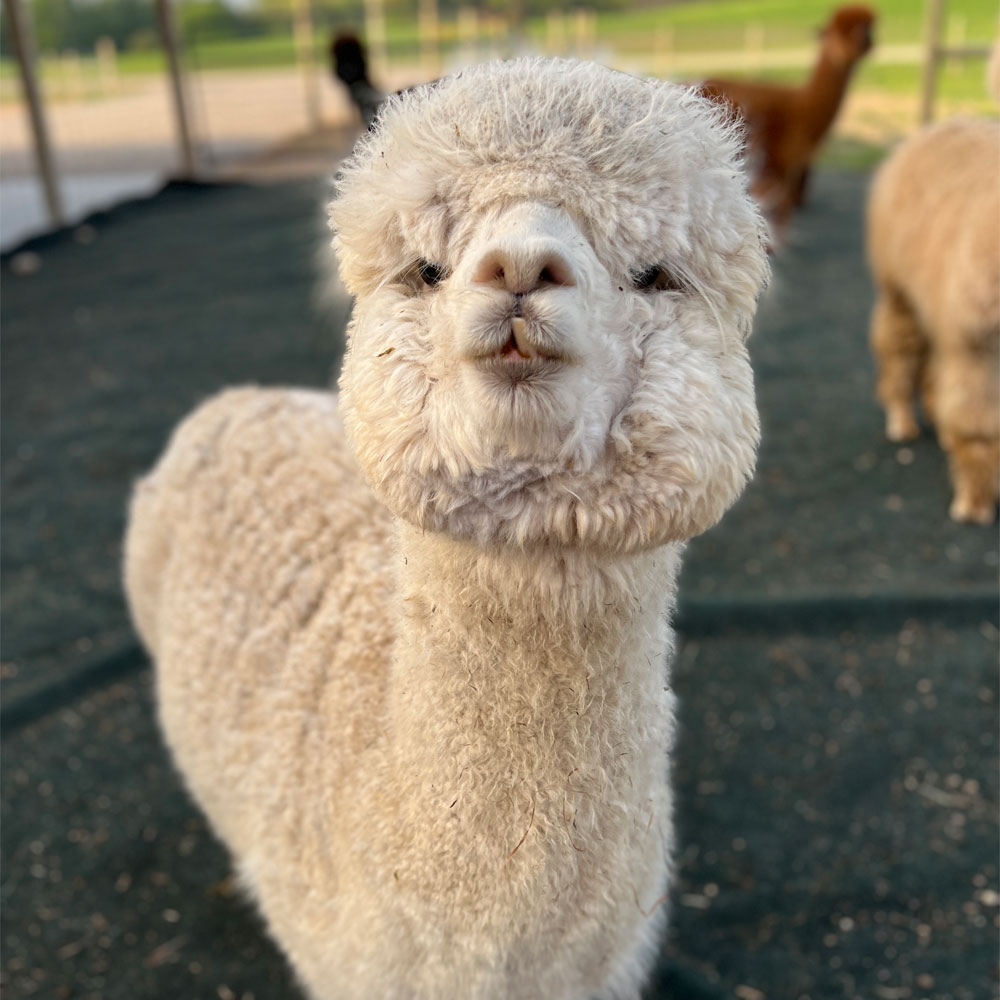
Faith
I've talked about Faith before in posts. The local 4-H program reached out and asked us if we could take Faith and her sister Stormy to our farm. When we adopted Faith she had no shelter, was never interacted with, and was afraid of her own shadow. She wouldn't come into our barn for months when we brought her home. I went out every night in the freezing cold to build her trust and get her into the barn. I was successful, but I had to work at it and I had to do it at Faith's pace.
Flash forward years later and Faith not only eats from my hand, she will eat from the hands of complete strangers. She still doesn't want to be touched and that's okay. It's not her thing and I respect that. What really matters is Faith is no longer scared. She is confident, calm, and she knows she has a safe home where she is loved.
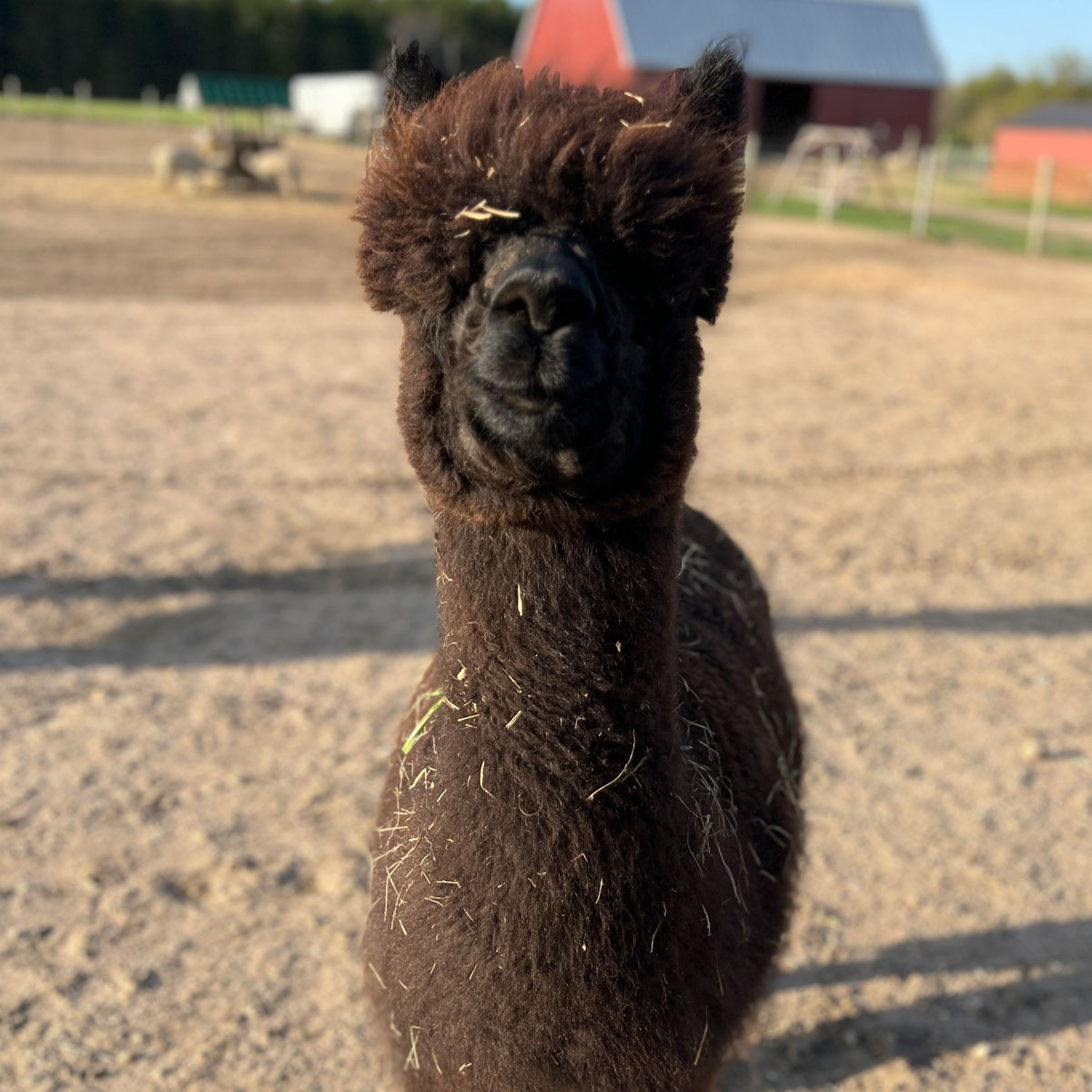
Onyx
Onyx, Heartthrob, and Nibbler all came to our farm when they were six months old. I fell in love with Nibbler and I could tell she needed extra attention due to her extreme anxiety. Yes, an alpaca can have legit anxiety. Because I spent so much time making sure Nibbler adjusted, I let Onyx and Heartthrob do their thing. They were best friends, had each other, and just didn't need the attention like Nibbler did. In hindsight, that was a mistake on my part.
Onyx always respected me as the female alpha, but we were never truly friends until I helped her deliver her baby Auburn this year. After that birth, Onyx loves for me and I can tell by the way she looks at me and moves around me. You can see it in her face when she sees me. And you can see it in her face when she watches her daughter love all over me. She knows I'm not a threat and little Auburn is safe with me.
Onyx needed time more than anything. She is a quiet gentle soul and was in no hurry to be my best friend. Sometimes the gift of time is the best gift you can give.
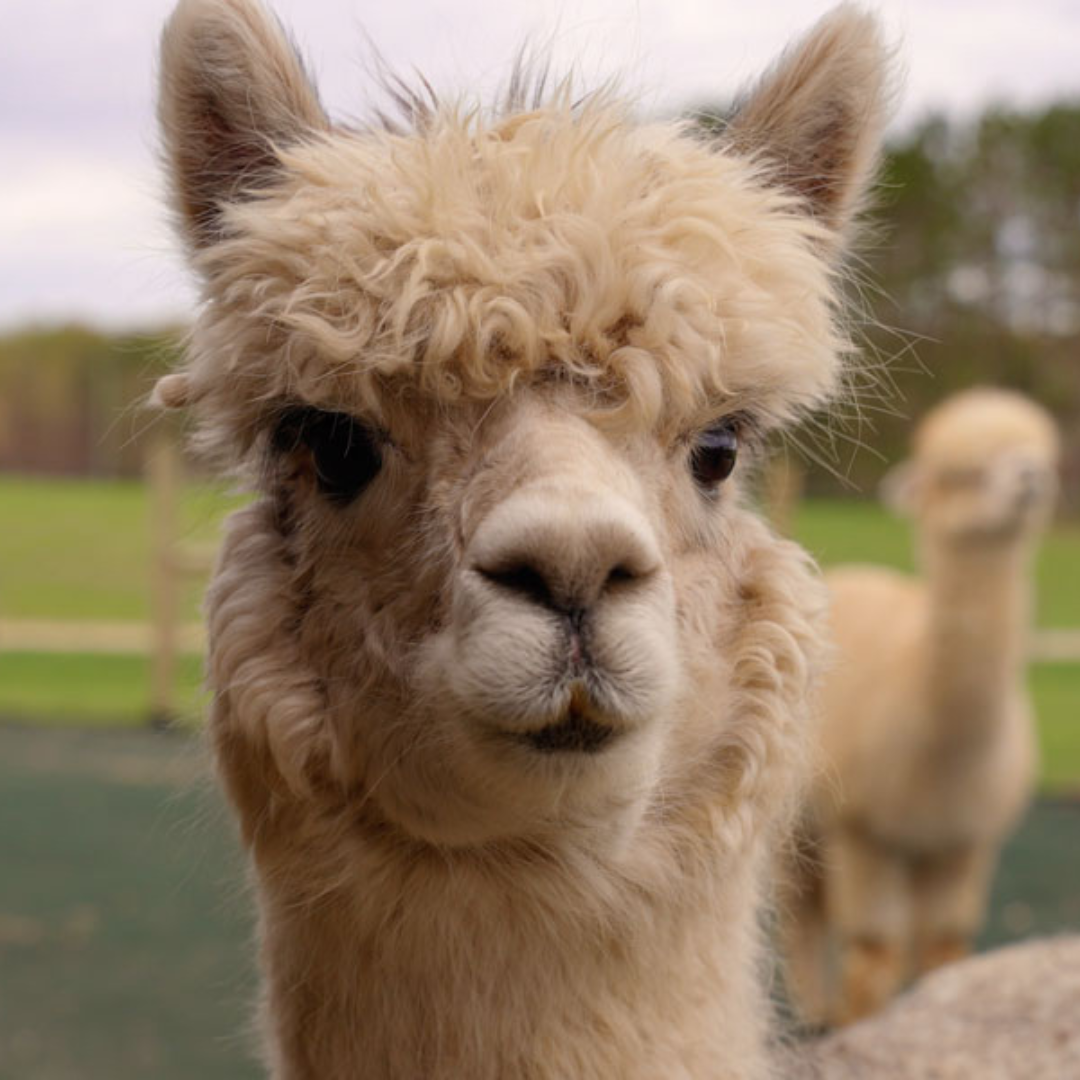
Daisy
Daisy came to us from a large farm. She has a very timid personality and she doesn't like drama. She will do her own thing and just blend into the background so she can avoid any conflict in the herd. The important part of this story is Daisy came to our farm pregnant and would need to have interaction during or after the birth.
I would spend my time working with Daisy but taking it very slow. I had to have her trust me in case we needed to really intervene in the birth. My efforts worked and I was so thankful. When Daisy went to deliver her second baby on our farm she was perfectly fine with me right behind her helping. I laid a blanket under her, I positioned the half-out baby so it could stay clean, and I talked to Daisy as we worked through contractions and pushing. During delivery, Daisy just looked at me with love and appreciation. My son started to approach, and while he was outside our paddock and still forever away, Daisy freaked out. She did a high-pitched scream and made it very clear he needed to stay away.
What was the difference between me and my son? I had spent time building her trust so she knew I was there to help. My son had not.
If you look at those examples you're going to see a trend. Those are the gift of time, respect, and love. Those three things will go so far in building trust and making friends.
View more of our lovable alpaca herd ->
Back to Kevin Bacon and His Alpaca Video
If I were Kevin or I had Sharona on my farm, I would have approached Sharona differently. Here are things I'd change and things I'd keep:
- I would have made sure Sharona and her alpaca friends were not in a corner. That would help them all feel like they have an exit plan if needed.
- I'd keep sitting the hay bale because that keeps you at their level and approachable.
- I'd position myself so my back isn't to them, which would allow them to see my eyes and make that much-needed emotional connection.
- I'd keep my arms in at all times. Sharona isn't ready for fast or wide movements.
- I'd address Sharona by name, make eye contact, and always give her a little extra attention so she knows she matters.
- I'd bring carrots or apples to help sweeten the deal. He has hay for them, but a little apple does wonders too.
Final Thoughts
I love my alpaca herd. Heck, I've often said I fell in love the moment I met my first alpaca herd. I could tell they were gentle creatures with sweet spirits and this stole my heart. This love was only amplified when I realized they were smart, trainable, and loyal.
If you're considering starting an alpaca farm or if you have an existing farm and have questions, drop them below. I'd love to hear your thoughts and help if I can.
The Alpaca Handbook: Everything You Need to Raise Healthy and Happy Alpacas
If you've enjoyed this content, you'll love Rebecca's new book. The Alpaca Handbook is the essential guide to raising, breeding, and enjoying alpacas on the farm. The book is a great resource for alpaca owners who raise them for fun or profit. In this 17 chapter, 200+ page, full color book, you’ll learn everything you need to know to become a successful alpaca owner. Each chapter includes educational information, as well as stories that tie this information to real-world experiences.
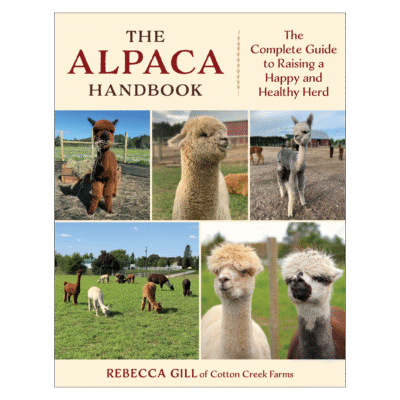

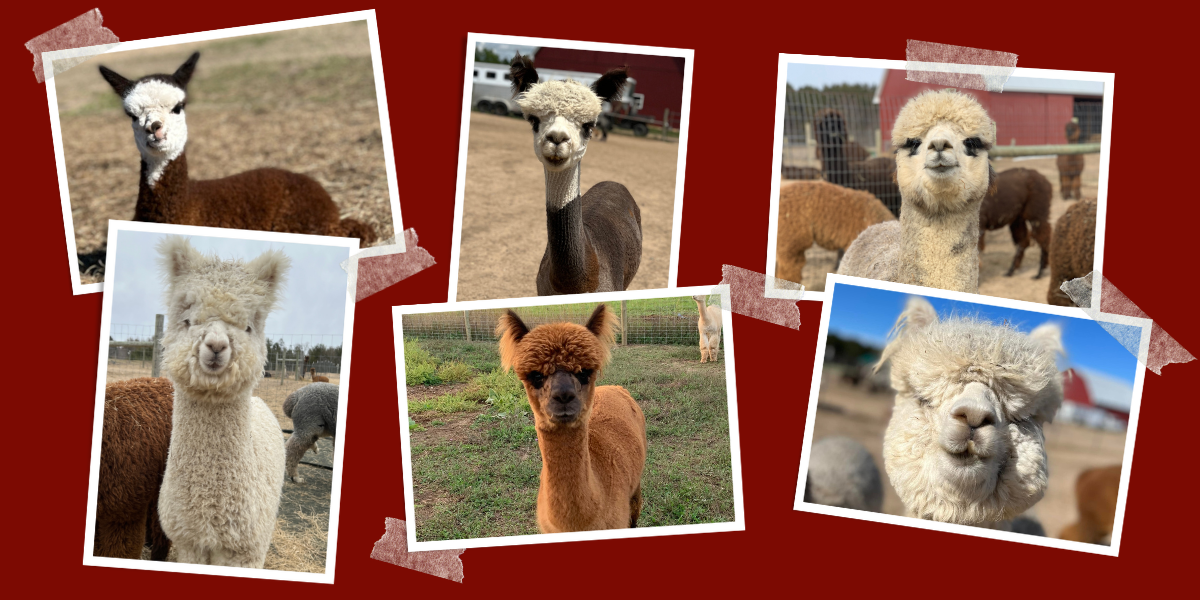

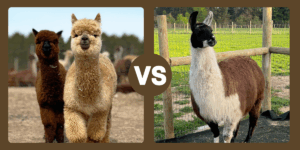
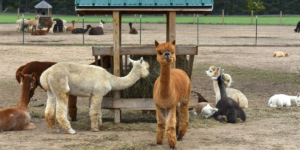
I just started reading your blogs. I just love them. I have a small ranch (just south of Battle Creek, MI) and we get our grain from you and Jason (through Feighner Farms). Our first purchase was while we visited your farm 2 years ago. Thank you for sharing your farm and your stories. We may make a trip up there this summer.
Debbie DeGayner
Troopers Alpaca Ranch
East Leroy, MI
Thanks for visiting and for commenting Debbie! If people keep reading, I’ll keep posting blog posts. =)
Hello Rebecca, I loved reading of your experiences. It really helped me as I am in the process of adopting 3 alpaca females from a local breeder. Your approach feels right as they are clearly highly sensitive special creatures. I went to watch the breeder take 💩 samples today and give injections and I felt the process was very stressful for the herd. They did have around 40 alpacas to do, but the process didn’t feel gentle or respectful, it felt chaotic and the way they grabbed them felt rough. I can understand they are livestock, and 40 is a lot to get through, but it just felt like stressful process.
Gillian I will admit my process and my husband’s are different. He is much faster than I am in movement and the alpacas don’t like it. But, unlike me, he has to move through a lot of alpacas for herd health and shots, which is why he moves faster.
One suggestion that makes the entire process is to use a catch pen. This allows you to have the alpacas in a smaller area, their are together (less stress), and it allows you to easily handle an alpaca without a lot of movement. We use this when we do our monthly shots and it helps a lot. We lock all the girls inside their barn and move through the herd by color. It is easy to secure them since the space is smaller.
I would still make eye contact and talk to them before I handle them, where my husband just moves into the medical treatment needed. The important thing with that process is my presence makes a difference. While he works I’ll hold them, softly talk to them, and lightly stroke their necks. My connection reduces stress and makes the process a lot smoother and faster.
Once you get your own herd try different techniques and watch behavior as you do. You’ll be able to visibly see what works for them and what doesn’t. Let them lead the way in handling and you’ll see a better connection and a much friendlier herd.
I’m getting my first 3 alpacas TOMORROW, for Valentines Day. I read this entire article and I’m more educated than ever. My girls are coming g from a good place, but I understand change will be hard and it will take time. Thanks for sharing!!
Congratulations on your purchase! I so love my herd and I’m sure you’ll feel the same.
The best advice I can give you for when the alpacas arrive home is to be present, move slowly, stay low, and just give them the gift of time. It is a huge transition for them and this is especially true if they have never left their farm before. Some may warm up quickly and some may take time. Remind yourself what you felt like on the first day of kindergarten or summer camp. They feel that nervous about coming to a new home.
I’m in the UK. Have 3 young males not 12 months yet. Ew to this. Building trust slowly. How do you manage the trust building against handling to deal with pulling brambles out of fleece, trimming feet etc. Had one injury. There must be a balance. They will go in shelter on their own at night but dart out as soon as I approach. I don’t force the issue, but try to keep them calm.
My suggestion is to make sure your good far outweighs your bad. If you are having to do unpleasant things four times a week with them, make sure you spend twice that amount of time just being present with them. That way they see both positive and negative from you and they’ll learn that positive is pretty cool.
I also find being at their level helps a lot. I bend down or even sit on the ground, which allows me to be more approachable and less scary. And when they come up to investigate, don’t raise your hands or move. Just talk to them with affection.
It may take time, but every alpaca will warm up with enough love and patience. They are lovable creatures that just need the right human and environment to bring it out.
Great to read your blog! I’m from The Netherlands and we have a heard with 11 alpacas and likely 5 crias on the way this year :). I have 2 females who sometimes give real kisses, they lick my face with their tongue. If they do so, I can really feel their affection. And I kiss them back on their nose (without tongue 😉 ). It’s almost like I’m part of their family. Those moments are so wonderfull. I asked other alpaca owners about this, but no one ever experienced this. So I’m so glad to read your article!
This spring we brought home four new girls who were all pregnant. They were all nervous coming into a new home with babies growing inside, so I spent time with them every day just being present. I do this with new alpacas normally, but I increased the frequency and duration with this group since I knew I was going to have to help them deliver babies soon. Two of the girls delivered and during delivery, they kissed me all over my face in appreciation. One was very frantic during delivery and ran to me and stayed right with me during the birth. She made eye contact with me the entire time, stayed close, kissed me, and was visibly calmed by my presence. It was so magical seeing these livestock animals connect on an emotional level and to know that my efforts to bond positively impacted their birthing process. Alpacas are emotionally intuitive, smart animals and most people just don’t give them the time or credit they deserve. I’m happy to hear The Netherlands is doing it right!
Wonderful tips. We have 3 girls we got in May of this year. I am wondering if it is possible to teach them to get in the back of an SUV; if they need to travel. Follow up question = As they do need to poop and pee frequently; will they do this in the back of the vehicle? Or do they wait until they get out if they are laying down? Thanks in advance for any advice you can share.
Katy you can train them to jump in the back. Marty McGee Bennett has resources to help train them for such activities. I believe her CAMELIDynamics course/book uses a frisbee and food for this, but I’d suggest you purchase her book to know for sure.
If your ride is short, the alpacas will most likely not pee or poop. We’ve had them in my SUV and my husband’s truck multiple times and there were no accidents. When we move them in our large livestock trailer, they will pee and poop inside, but this is used for extended trips like 10-15 hours.
Most alpacas will lay down during a trip. When you stop, they will stand up and stretch.
I think the question is how far will you be transporting them? How long will they be in the vehicle?
We got our first 3 alpacas a week ago, they already love to come and eat from our hands, and happily walk all round is, but won’t let us touch them except to take food from our hand.
How do we build up to them using a halter?
They are 4 years old and only been haltered as babies, and very rarely since.
You suggest not to make them feel enclosed, so to do halter training, would you not use a shelter?
I’d love any advice to do it in the least stressful way possible for the alpacas.
We have 4 children who are desperate to be able to walk the alpacas in future, though they are very happy calmly feeding them at the moment.
We also need to be able to walk them between grazing.
Thank you so much for any help.
When we bought our first five alpacas we proceeded as you did and we were eager to put the alpacas on halters. Looking back I now see this was a mistake. We were rushing the acclimation process and it was working against us.
My suggestion is to put away the halters, don’t try and touch the alpacas. Just be present with arms and hands in. Let them get used to you before you try and do anything with them outside of hand feeding.
Just like a dog to a new home, the alpacas will take a few months to truly settle in. They need time to feel safe and loved before they will be comfortable with touching or halter training.
When you do touch, only touch the neck or cheeks. Avoid the head (they will always hate that) and stay clear away from their butts. Remember that some alpacas will love being pet and others will always hate it. Just like humans, alpacas have uniqueness to their personalities.
Once the alpacas love the children, they will want to please the children, and they will be much more inclined to accept halters and perform.
My son and his wife adopted a couple of alpacas and 3 llamas from a woman who was dying of cancer. They were old, apparently, and all died within a few years except for one alpaca.
I sense that she is lonely, even though she’s with several sheep. (She sure does her job watching over the herd!)
She definitely does not like the human face looking at her face; she’ll spit. Last time I cared for the farm while the kids were on vacation, I got to the point of being able to feed her apple treats from my hand. But I cut them wrong so she spit them out. After reading your story I will cut them differently next time.
Do you have any words of wisdom for me next time I visit? My kids are now so busy with their new kids (yep, now a grandma!) they don’t have time to give her much attention.
Judy the lone alpaca is under significant stress and until that is resolved, making friends won’t be possible.
Alpacas are herd animals and they need other camelids to feel mental and physically safe. This alpaca doesn’t have this right now, so it is constantly under stress. The alpaca needs buddies of the same sex or it should be rehomed to a farm with other alpacas (again same sex).
I’d watch parasites and body weight carefully. The stress can cause parasites to bloom, which causes weight loss and other heath issues.
Thank you! I’ll let my son know. I believe there are alpaca herds nearby.
Take care!
Merry Christmas and Happy New Year!